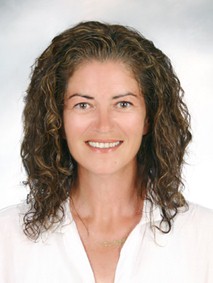|
If you remember your English grammar you’ll know the difference between active and passive sentences. Well….do you know? Don’t worry, I’ll tell you … in an active sentence the subject is the star and the object plays a supporting role. So if I say ‘The students studied English in the classroom.’ – then ‘The students’ is the star and ‘English’ plays a supporting role. But in a passive sentence, the subject and object switch places, so ‘The students’ takes the supporting role: ‘English was studied by the students in the classroom.’ I can even take out the object completely: ‘English was studied in the classroom.’ ‘The students’ has disappeared.
Why am I talking about active and passive sentences? There’s a reason. When you are learning a language you can learn two ways: the ‘active’ way or the ‘passive’ way. I have been teaching in South Korea for three years, and when I first arrived I was so surprised by my students. Most of them had been learning English for many years but had trouble making a complete sentence in English! I wondered why. It took some time for me to realize that my students had spent YEARS in English class sitting in a chair, listening to a teacher, answering grammar questions in a book, memorizing rules and vocabulary, but NEVER learning how to actually communicate using English.
Many Korean students are frustrated and think ‘I can’t speak English well.’ This is true now … but it’s temporary. The reason you think you ‘can’t’ is because you have been learning English in a passive way – sitting, thinking, memorizing … but not speaking. In an active language classroom the focus is on the subject – YOU. An active classroom forces you to start using all the rules and vocabulary you have in your head, makes you start thinking about how to put words together to make them come out of your mouth. It’s not easy to do, but once you start it becomes a little easier every time you do it. And soon you will become comfortable using the grammar rules you learned in many different situations, to talk about many different subjects. Will you make mistakes? YES!! Will your English teacher get angry when you make mistakes? NO!! Please understand that when you make a mistake in English class, probably 90% of the other students in your class make exactly the same mistake when they speak. If you make a mistake, this is something your teacher can help everyone understand. So making mistakes is actually a very positive thing in a language classroom!
In North America and most Western countries it is common and natural to speak to most people in the same way. In South Korea the rules are a little different – there are rules about how to speak to people who are younger or older than you. This can be a problem in an active language classroom, and some of my students have been very shy to speak to their classmates because ‘He’s a senior!’ or ‘I’m only a freshman!’ In an active classroom you must be willing to speak to everyone the same way. Even if your partner is a senior and you’re a freshman, both of you are exactly the same: you are students learning to speak English. You will both make mistakes, but a freshman can help a senior with a vocabulary word and a senior can help a freshman with a grammar problem - in this kind of situation, everyone wins.
If I can give you some advice, here it is: If you have to take English, find an English teacher who will make you speak to every other student in the classroom. This is a scary idea for most students – but I promise you, after one or two weeks you will not be nervous anymore. You will find it is easy to talk with people who are just like you – trying to learn to speak a language. Have courage! Be brave! Make mistakes! You will find your English speaking ability getting stronger and stronger. Choose an active English class. Make YOU the star.
 |
|
Professor
Maureen Kiely
|
< Copyright © The Gachon Herald All rights reserved > |
